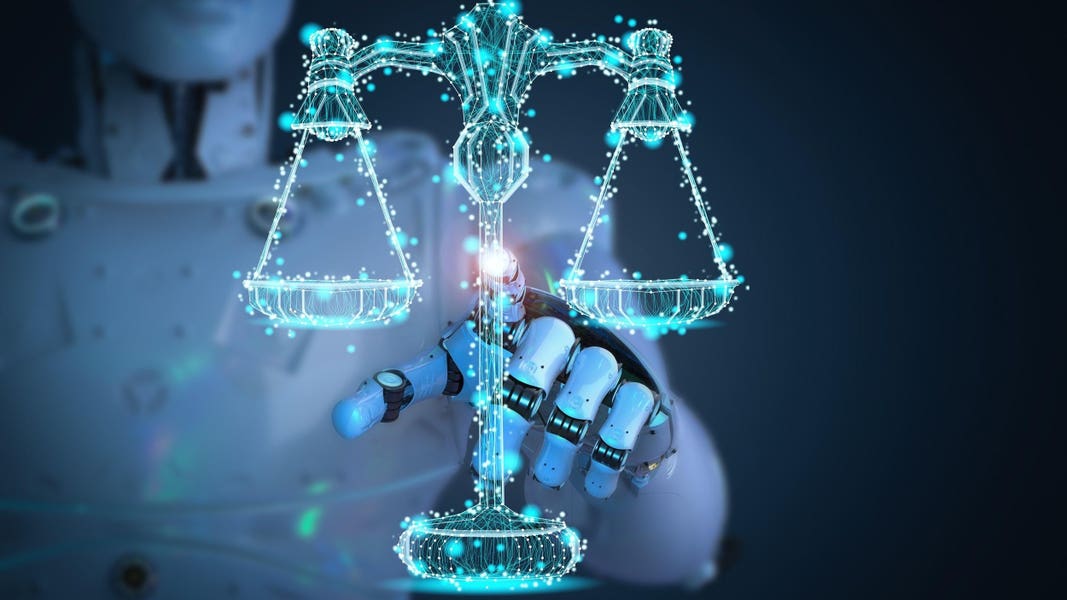ChatGPT, a cutting-edge AI tool, is reshaping the landscape of knowledge-based work. This transformation suggests that legal practitioners, including attorneys and other legal experts, stand to gain by enhancing their productivity and reducing time spent on repetitive tasks.
A recent survey by LexisNexis revealed that 92 percent of lawyers anticipate a significant impact from generative AI on their profession.
However, the legal sector encounters unique challenges in adopting this technology. Security remains a paramount concern in the legal realm, where even minor errors by AI tools can have severe repercussions on individuals’ lives.
The question arises: Are legal professionals embracing the potential benefits? This article delves into the groundbreaking influence that generative AI is poised to have on legal professions, exploring how the roles of lawyers, attorneys, solicitors, clerks, judges, and barristers in society may evolve with the widespread adoption of this technology.
Delving into Research and Fact-Finding
One of the key strengths of generative AI lies in its ability to sift through extensive document archives and extract meaningful insights. Most professionals are willing to leverage such systems, freeing up time for more valuable human-centric tasks like engaging with clients to grasp their concerns—a task AI may not accomplish effectively for some time.
Generative AI can streamline legal research by identifying relevant laws, rulings, and precedents from vast repositories, translating these findings into user-friendly formats tailored for various audiences, from novice lawyers to seasoned judges or laypersons seeking legal clarity.
Moreover, this technology can automate the creation of files, contracts, and correspondence, tasks that, while essential, can be time-consuming for professionals. In the legal realm, it is becoming increasingly rare to find a practitioner not utilizing generative AI to streamline these daily operations.
As highlighted in a study by LexisNexis, lawyers foresee the primary applications of generative AI in research (65 percent), document drafting (56 percent), document analysis (44 percent), and email composition (35 percent).
Evaluating Risks and Due Diligence
Generative AI excels in predictive analytics, aiding attorneys in making informed, data-driven decisions. Whether assessing the viability of litigation against settlement costs or predicting legal outcomes, this technology enhances decision-making, particularly for professionals with limited data science expertise.
However, ethical and transparency considerations are paramount. Lawyers must maintain transparency with clients regarding decisions influenced by AI. Additionally, ensuring data accuracy and impartiality is crucial for reliable predictive analysis.
Despite its benefits, generative AI also poses risks, especially concerning data security and privacy. Legal professionals handle sensitive client information, necessitating caution when integrating such data with AI systems.
Fortunately, private AI solutions offer secure alternatives, ensuring data confidentiality—a feature likely to appeal to privacy-conscious legal practitioners.
Enhancing Legal Access and Justice
Generative AI has the potential to enhance legal access and promote the rule of law by facilitating communication between attorneys and clients. Chatbots can provide preliminary legal guidance without divulging personal information, directing users to human experts when necessary.
Moreover, these AI tools can aid lawyers in effectively communicating case updates to clients, simplifying complex legal concepts for diverse audiences. Vigilant oversight is crucial to uphold confidentiality and ensure appropriate responses.
Available Tools and Solutions
A myriad of specialized AI tools, such as Harvey, ExParte, Casetext, and Deepjudge, alongside ChatGPT, Microsoft Co-Pilot, and Bard, streamline routine legal tasks and bolster decision-making processes.
Evolving Legal Roles
While human involvement remains indispensable in legal processes like research, drafting, and argumentation, generative AI is poised to redefine legal roles. Successful legal professionals will prioritize human-centric tasks, fostering client relationships and trust—a realm where machines may fall short.
This transition allows for more time dedicated to education and skill development, encouraging proficiency in technology to leverage available tools effectively. Soft skills like creativity and communication may also gain prominence.
Moreover, legal practitioners must navigate regulatory complexities surrounding AI and data usage, emphasizing transparency and ethical conduct in data handling.
In adapting to these changes, legal professionals can future-proof their careers by striking a balance between efficiency optimization and addressing emerging challenges posed by disruptive technologies.










